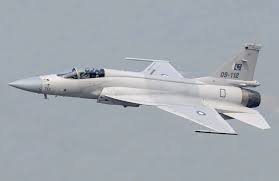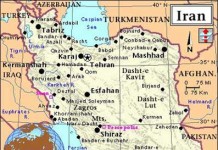
Context
While the Pakistan-India tensions are known to flare up occasionally, the present one over the February 14 Pulwama incident has calmed down for the time being – but is likely to have a next episode. Most assessments of the incident have examined the conflagration from a bilateral prism, and less emphasis has been directed on scanning the domestic and regional context under which the present tensions have taken shape.
Domestic Politics
Palwana attack triggered a dangerous crisis between the two nuclear-armed neighbors; it represented a first foreign policy test for Pakistan’s new economically strangled PTI led government. It was perhaps meant to test the fresh political setup. On the other hand, corruption cases are proceeding against prominent political leaders, with the nations former three times prime minster, Nawaz Sharif, already serving a jail term. So there is the domestic politics of Pakistan to consider.
Afghan Reconciliation and India
Then there is the regional context where Afghan reconciliation is swiftly moving forward with emphasis on four key segments: intra-Afghan dialogue, troop withdrawal, counter terrorism assurances, and a complete ceasefire. However, it’s unclear what the role of India, if any, would be in the Afghan settlement.
Related Interviews:
1. Pakistan’s Crackdown Against Banned Groups And Pakistan-India Tensions
2. Pulwama Attack: Political or Military Solution to Pakistan-India Tensions
3. Afghan Peace Process: Can Pakistan, Afghanistan, and US Trust Each Other
Speaking at the Senate Armed Services hearing recently, CENTCOM Commander General Votel commented US desires to ensure “Pakistan’s equities are acknowledged and addressed in any future agreement in Afghanistan.“
If Pakistan plays a positive role in achieving a settlement to the conflict in Afghanistan, the US will have opportunity and motive to help Pakistan fulfill that role, as peace in the region is the most important mutual priority for the US and Pakistan,” he added.
However, India cannot let Pakistan and China emerge as the chief beneficiaries of peace in Afghanistan, or to allow a return to the pre 9/11 geopolitical environment. The Pulwama incident once again raises Indian concerns and its attempts to place Pakistan at the center of cross border terrorism. Meanwhile, Pakistan tries to clear its culpability as the proceedings of Financial Action Task Force (FATF) and the United Nations Security Council take place.
Pakistan’s Crackdown Against Banned Outfits
The post Palwama crackdown on banned India oriented outfits in Pakistan, such as JuD, has the potential to make matters difficult for Imran Khan. He won the election apposing the kinetic approaches adopted in the campaign against extremism, and supported political route to settle the Afghan quagmire. Imran’s method ultimately received the American buy-in and has resulted in the present on-going direct talks between the US and Afghan Taliban.
The Pulwama attack, and the subsequent crack down, could add a new dimension to Pakistan’s campaign against extremism. Can Imran Khan also convince India that the causes of mutual animosity can be settled by dealing with the simmering Kashmir issue politically? India, under Modi, appears hell-bent on taking a military approach, but the world can hardly afford an irrational strategy in a nuclear environment.
Nonetheless, if Afghan reconciliation does take place, it does give Pakistan the space to address India oriented groups. Moreover, with Kashmir already hot, now mainly due to the Indian mishandling and harsh military tactics, any connection to groups like JuD serves to harm the otherwise legitimately accepted global issue.



